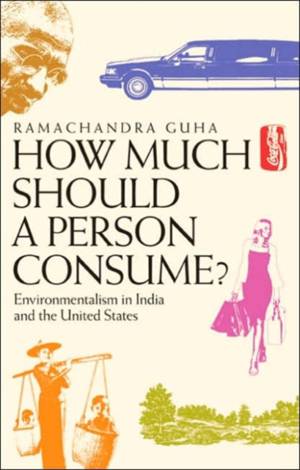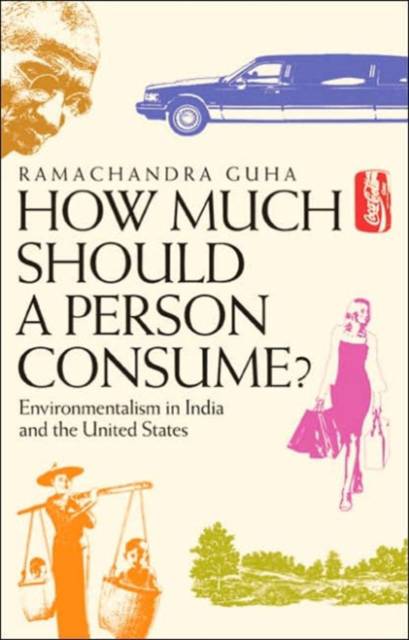
Bedankt voor het vertrouwen het afgelopen jaar! Om jou te bedanken bieden we GRATIS verzending (in België) aan op alles gedurende de hele maand januari.
- Afhalen na 1 uur in een winkel met voorraad
- In januari gratis thuislevering in België
- Ruim aanbod met 7 miljoen producten
Bedankt voor het vertrouwen het afgelopen jaar! Om jou te bedanken bieden we GRATIS verzending (in België) aan op alles gedurende de hele maand januari.
- Afhalen na 1 uur in een winkel met voorraad
- In januari gratis thuislevering in België
- Ruim aanbod met 7 miljoen producten
Zoeken
How Much Should a Person Consume?
Environmentalism in India and the United States
Ramachandra Guha
Paperback | Engels
€ 59,45
+ 118 punten
Omschrijving
Based on research conducted over two decades, this accessible and deeply felt book provides a provocative comparative history of environmentalism in two large ecologically and culturally diverse democracies--India and the United States. Ramachandra Guha takes as his point of departure the dominant environmental philosophies in these two countries--identified as "agrarianism" in India and "wilderness thinking" in the U.S. Proposing an inclusive "social ecology" framework that goes beyond these partisan ideologies, Guha arrives at a richer understanding of controversies over large dams, state forests, wildlife reserves, and more. He offers trenchant critiques of privileged and isolationist proponents of conservation, persuasively arguing for biospheres that care as much for humans as for other species. He also provides profiles of three remarkable environmental thinkers and activists--Lewis Mumford, Chandi Prasad Bhatt, and Madhav Gadgil. Finally, the author asks the fundamental environmental question--how much should a person or country consume?--and explores a range of answers.
Copub: Permanent Black
Copub: Permanent Black
Specificaties
Betrokkenen
- Auteur(s):
- Uitgeverij:
Inhoud
- Aantal bladzijden:
- 275
- Taal:
- Engels
Eigenschappen
- Productcode (EAN):
- 9780520248052
- Verschijningsdatum:
- 15/11/2006
- Uitvoering:
- Paperback
- Formaat:
- Trade paperback (VS)
- Afmetingen:
- 155 mm x 230 mm
- Gewicht:
- 394 g

Alleen bij Standaard Boekhandel
+ 118 punten op je klantenkaart van Standaard Boekhandel
Beoordelingen
We publiceren alleen reviews die voldoen aan de voorwaarden voor reviews. Bekijk onze voorwaarden voor reviews.









